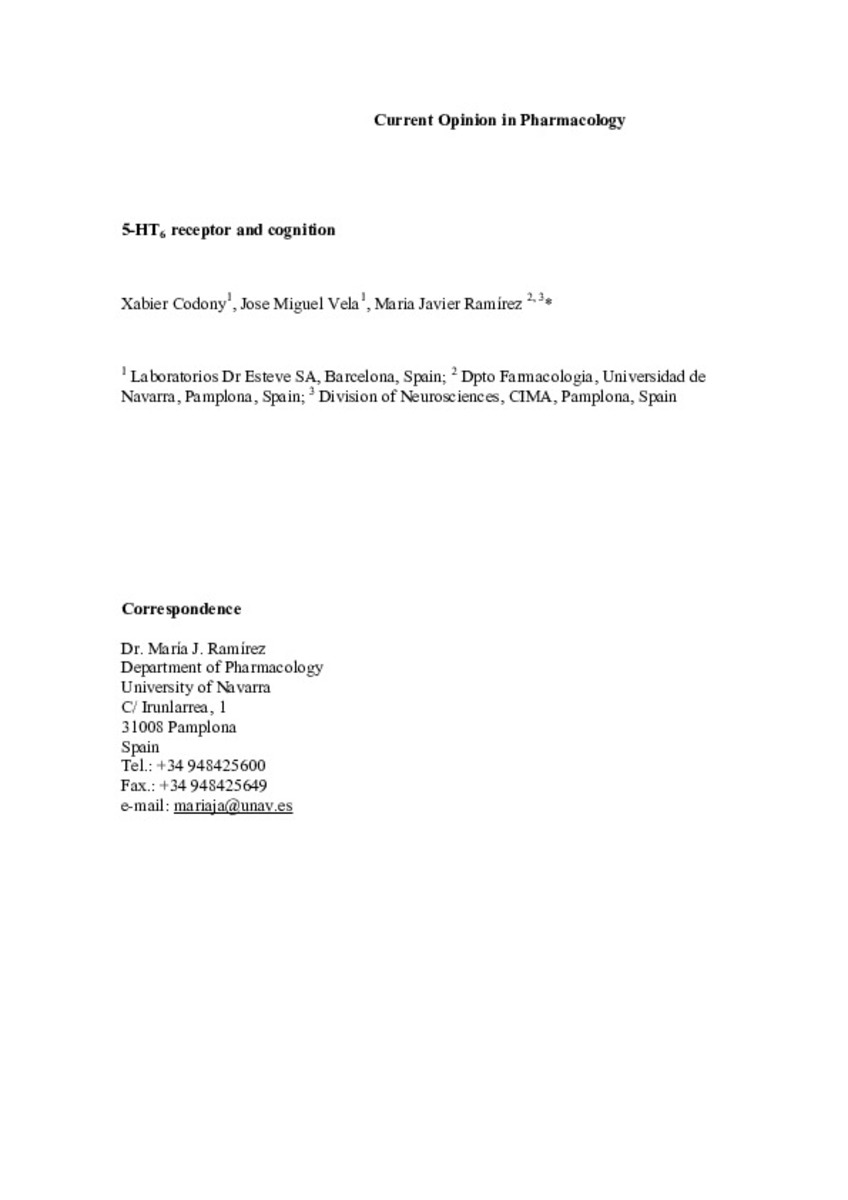Full metadata record
| DC Field | Value | Language |
|---|---|---|
| dc.creator | Codony, X. (X.) | |
| dc.creator | Vela, J.M. (José Miguel) | |
| dc.creator | Ramirez, M.J. (María Javier) | |
| dc.date.accessioned | 2011-06-07T11:19:55Z | - |
| dc.date.available | 2011-06-07T11:19:55Z | - |
| dc.date.issued | 2011 | - |
| dc.identifier.citation | Codony X, Vela JM, Ramirez MJ. 5-HT(6) receptor and cognition. Curr Opin Pharmacol 2011 Feb;11(1):94-100. | es_ES |
| dc.identifier.issn | 1471-4973 | - |
| dc.identifier.uri | https://hdl.handle.net/10171/18451 | - |
| dc.description.abstract | Since its discovery in 1993 and subsequent development of selective antagonists, a growing number of studies support the use of serotonin 5-HT(6) receptor antagonism as a promising mechanism for treating cognitive dysfunction. Lately, several studies with structurally different compounds have shown that not only antagonists, but also 5-HT(6) receptor agonists improve learning and memory in animal models. There is even an antagonist, SB-742457, that has completed phase II trials for the treatment of Alzheimer's disease. In addition to describe preclinical and clinical evidence of the effect of 5-HT(6) receptor compounds on cognition, this article will also focus on the purported biochemical and neurochemical mechanisms of action by which 5-HT(6) receptor compounds could influence cognition in health and disease. | es_ES |
| dc.language.iso | eng | es_ES |
| dc.publisher | Elsevier | es_ES |
| dc.rights | info:eu-repo/semantics/openAccess | es_ES |
| dc.subject | 5-HT6 receptors | es_ES |
| dc.subject | Alzheimer's disease | es_ES |
| dc.title | 5-HT(6) receptor and cognition | es_ES |
| dc.type | info:eu-repo/semantics/article | es_ES |
| dc.relation.publisherversion | http://www.sciencedirect.com/science/article/pii/S1471489211000051 | es_ES |
Files in This Item:
Statistics and impact
Items in Dadun are protected by copyright, with all rights reserved, unless otherwise indicated.






